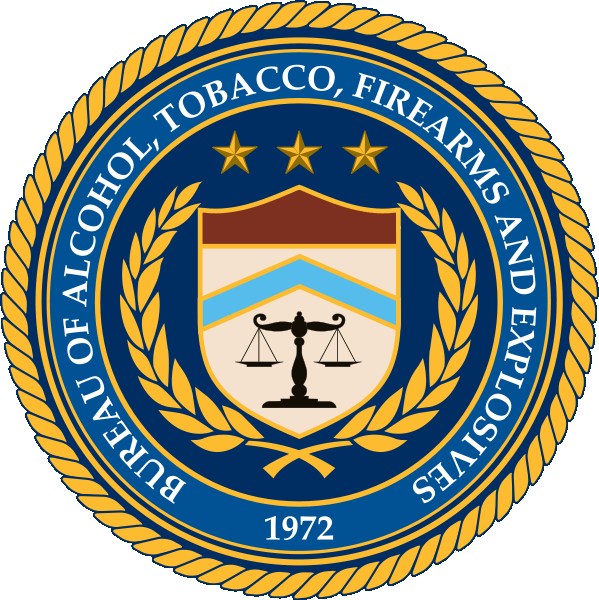5 Reasons To Digitize Your Powder Magazine Inventory Logs And Stay Compliant With ATF 2007-1 Regulation
When it comes to mining, explosives are a necessary part of the process. Explosives are used in mining to break up rock formations so that minerals can be extracted. They are also used in quarrying, to remove large blocks of stone, and in construction, to demolish buildings.
Getting to use explosives on the job is an appealing part of the mining trade for some people, but these explosives are very powerful and can cause serious injuries or death if they are not used properly. Because of this, businesses have to follow the rules and regulations set forth by officials in order to conduct business using these explosive resources.
ATF Regulations On Explosives In Mining
There is an inherent risk associated with being in possession of black powder because of the many ways it can be used to harm others. Therefore, there are organizations, like the ATF, that regulate and track its use.
The Bureau of Alcohol, Tobacco, Firearms, and Explosives (ATF) is a regulating body for the use of explosives in the United States. The ATF conducts inspections of businesses to make sure they are complying with the law. If the ATF finds that a business is not following the regulations required to own explosives, it can take enforcement action, which can result in fines or even the shutdown of the business.
If you’re involved in mining, it’s important to be aware of ATF regulations. Here are some things you need to know:
Documentation
You must have a license or permit to manufacture, possess, store, or transport explosives.
Follow Safety Rules
Explosives are a necessary part of operations in many mines, quarries, and construction sites. The use of explosives can be very dangerous, so it is important to have well-trained personnel and comprehensive documentation to ensure safety. To be compliant with the ATF and other regulating bodies in the United States, you must follow strict safety rules when handling explosives. This includes storing them properly and keeping them away from children and unauthorized persons.
Keep Detailed Records
You must report any losses or thefts of explosives to the ATF immediately because they keep strict records of who purchased them, how they are being used, and who is responsible for them. The tracking and logging of explosives is a critical part of ensuring their safe use. Businesses that use explosives should make sure they are in compliance with the ATF’s regulations to avoid any problems.
One of the most important pieces of information for the ATF when it comes to detailed records is the powder magazine inventory log. Making sure this is properly documented is crucial for smooth mining operations.
One of the most important pieces of information for the ATF when it comes to detailed records is the powder magazine inventory log. Making sure this is properly documented is crucial for smooth mining operations.
What Are Powder Magazine Inventory Logs?
Powder inventory logs are used to keep track of the amount of gunpowder a person has on hand. Powder inventory logs typically list the date, type, and amount of powder purchased, as well as the name and address of the supplier. They may also include other information, such as how the powder will be used and the names and contact information of any other people who have access to the powder.
Why Does ATF Require Powder Inventory Logs?
Powder inventory logs help the Bureau of Alcohol, Tobacco, Firearms, and Explosives (ATF) monitor the purchase and sale of gunpowder. This is important because gunpowder can be used to make improvised explosive devices (IEDs), which seriously threaten public safety. Inventory logs also help ATF trace gunpowder in the event that it is used in a crime. For example, if a bomb made with black powder is found at a crime scene, ATF can look at the purchase records of nearby stores and identify who bought black powder around the time of the incident. This information can then be used to investigate possible suspects. The requirement for powder inventory logs is just one part of ATF’s efforts to regulate the firearms and explosives industries.
5 Reasons You Should Digitize Your Inventory Logs
Now that you understand how important it is to keep a good record of your explosives, let’s discuss how digitizing your inventory can prove very valuable to your business! Here are five reasons you should digitize your powder magazine inventory logs.
#1: ATF Compliance
One of the main reasons to digitize your powder magazine inventory logs is to ensure compliance with ATF 2007-1 regulation. These regulations require that all firearms and ammunition be stored in a secure, locked location. By digitizing your inventory logs, you can easily track and monitor explosive material in your possession. Not only is it simple to have a
digital log, but it can save time by being easily shared with anyone requesting it. This ensures less downtime if the ATF ever comes asking for your information.
#2: Security
Another reason to digitize your powder magazine inventory logs is for security purposes. By having a digital record of all explosives in your facility, you can help prevent theft or loss. Additionally, you can quickly and easily identify any missing or stolen items.
#3: Efficiency
Digitizing your inventory logs can also help improve efficiency in your operations. Having a digital record of all your powder magazines can help you quickly and easily locate items when needed. Additionally, you can use the digital logs to track and monitor inventory levels, ensuring that you always have the supplies you need on hand. When data is digital, it is easily accessible and therefore easily located, updated, and shared with anyone who needs it.
#4: Accuracy
Digitizing your inventory logs can also help improve efficiency in your operations. Having a digital record of all your powder magazines can help you quickly and easily locate items when needed. Additionally, you can use the digital logs to track and monitor inventory levels, ensuring that you always have the supplies you need on hand. When data is digital, it is easily accessible and therefore easily located, updated, and shared with anyone who needs it.
#5: Cost Savings
One of the benefits of digitizing your powder magazine inventory logs is increased accuracy. When all information is entered into a digital format, it is easier to ensure that the data is accurate. It’s been shown that inventories that are logged digitally are updated more often. Ultimately, having a digital inventory can save time and frustration when you are trying to locate specific items or check inventory levels.
Conclusion
Explosives are powerful and can be very dangerous if they’re not used properly. That’s why it’s important to follow the rules set by regulators like the ATF when purchasing, storing, and handling them. You can rest assured that when you keep digital records of your important inventory logs, you’ll have easier access to the essential records you need to maintain compliance with ATF regulations. It’s a big relief to know you have all your records easily accessible at the click of a button, especially if there is ever a request for them.

ATF is the Bureau of Alcohol, Tobacco and Firearms
